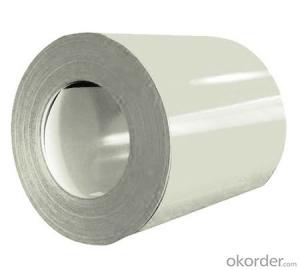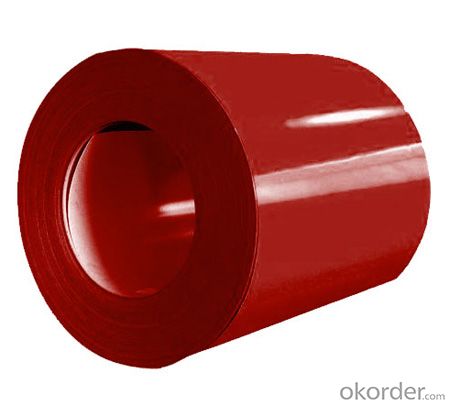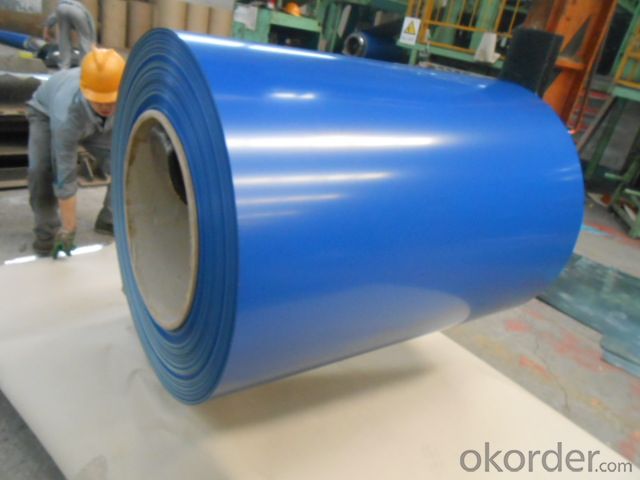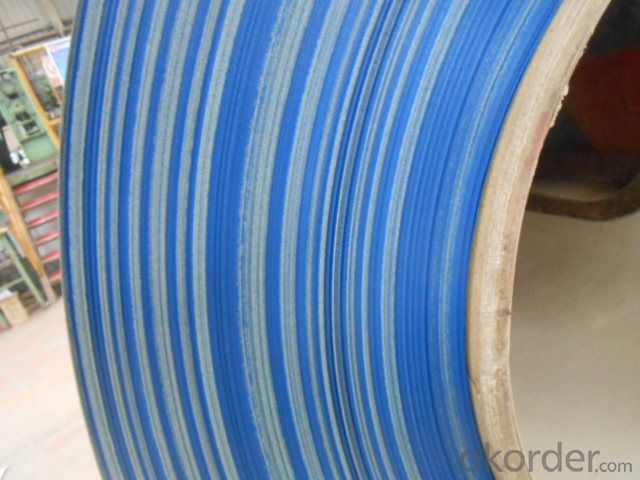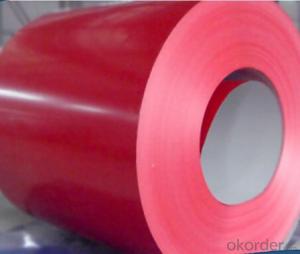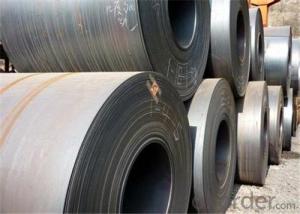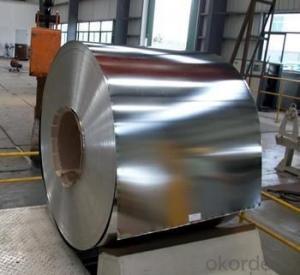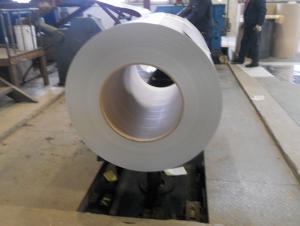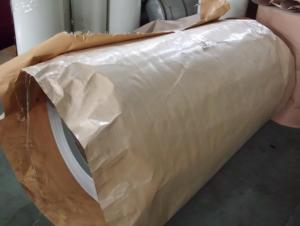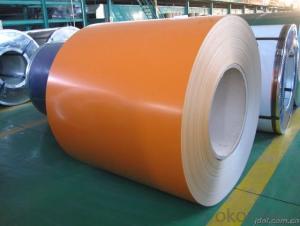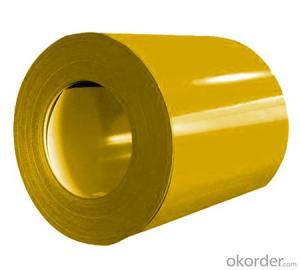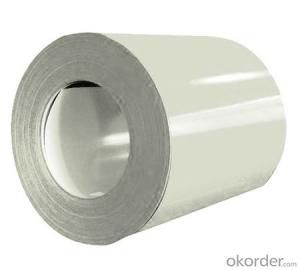Pre-painted Galvanized Steel Coil-JIS G 3312 CGC340--Workability, Durability
- Loading Port:
- China main port
- Payment Terms:
- TT OR LC
- Min Order Qty:
- 25 m.t.
- Supply Capability:
- 15000 m.t./month
OKorder Service Pledge
OKorder Financial Service
You Might Also Like
Pre-painted Galvanized Steel Coil-JIS G 3312 CGC340--Workability, Durability
1.Description of Pre-painted Galvanized Steel Coil-JIS G 3312 CGC340--Workability, Durability:
Prepainted Galvanized Steel usually refers to have substrate processed with surface processed and coated then(roller coated )or bonded organic thin film and baked, and it is able to be processed to final prodevtion .
Prepainted Galvanized Steel qualified with excellent decorative ,formability ,corrosion resistance ,coating adhesion ,can keep for a long time as well as maintain fresh color .For color coated steel sheet can obtain good economic benefit by steel belt wood ,efficient in construction and save energy ,prevent pollution etc.Which is an ideal material;for manufacturing board.
2.Specification:
Thickness: 0.2-0.8mm
Width: 600-1250mm
Length: on request
Zinc coating: 30-275g/m2
Color: RAL series
Paint: PE, PVDF, PU
3. Images:
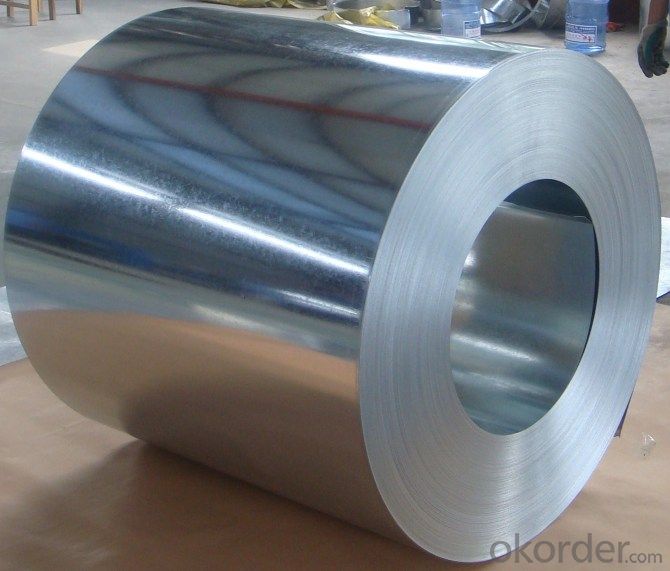
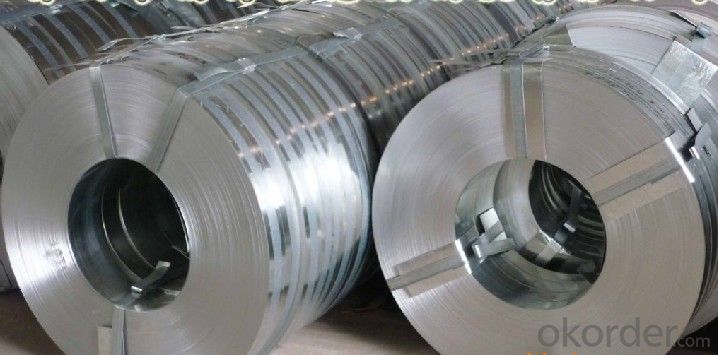
4. Application:
1.Buildings and constructions: roofing, ceilings, gutters, venting lines, indoor decorations,window frames, etc
2.Electrical appliances: computer shells, washing machines, refrigerators, dehumidifiers,video recorders, water heaters, etc.
3. Agricultural equipments: troughs, feeding tools, agricultural driers, irrigation channels, etc.
4. Vehicle parts: back-seat plates of buses and trucks, conveying systems, oil tanks, etc.
5. Main Features :
1. High strength
2. Well rainproof performance
3. Good corrosion
4. Easy to install and remove
5. FAQ
1.How to guarantee the quality of the products?
We have established the international advanced quality management system,every link from raw material to final product we have strict quality test;We resolutely put an end to unqualified products flowing into the market. At the same time, we will provide necessary follow-up service assurance.
2. How long can we receive the product after purchase?
Usually within thirty working days after receiving buyer’s advance payment or LC. We will arrange the factory manufacturing as soon as possible. The cargo readiness usually takes 15-25 days, but the shipment will depend on the vessel situation.
- Q: How do steel coils contribute to the strength and durability of structures?
- Steel coils contribute to the strength and durability of structures by providing a high tensile strength and resistance to deformation. When used in construction, steel coils can be formed into various shapes and sizes to reinforce structural components like beams, columns, and foundations. This reinforcement enhances the structural integrity, preventing the structure from collapsing under heavy loads or adverse conditions. Additionally, steel coils have excellent corrosion resistance, which ensures that the structure remains durable and long-lasting, even in harsh environments.
- Q: What are the different types of steel alloys used in coil manufacturing?
- There are several types of steel alloys commonly used in coil manufacturing, including carbon steel, stainless steel, and high-strength low-alloy (HSLA) steel. Carbon steel is the most common and affordable option, offering good strength and durability. Stainless steel is corrosion resistant and often used in applications where hygiene or aesthetics are important. HSLA steel provides high strength and improved formability, making it suitable for demanding applications such as automotive parts.
- Q: What are the different types of steel coil handling systems?
- There are several types of steel coil handling systems, including cradle systems, C-hook systems, coil grab systems, and coil transfer cars. These systems are designed to safely and efficiently handle steel coils of various sizes and weights in manufacturing and storage facilities.
- Q: What are the different types of steel finishes available for coils?
- There are several types of steel finishes available for coils, including hot-dip galvanized, galvannealed, electro-galvanized, and painted finishes.
- Q: How are steel coils inspected for impact resistance?
- Steel coils are inspected for impact resistance through various methods including conducting visual inspections, performing non-destructive testing such as ultrasonic testing and magnetic particle inspection, and conducting drop tests to simulate real-life impact scenarios. These inspection techniques help ensure that the steel coils meet the required standards and can withstand potential impacts during transportation, handling, and usage.
- Q: Are steel coils corrosion-resistant?
- Yes, steel coils can be made corrosion-resistant through various methods such as galvanization or coating them with protective layers.
- Q: What's the best way to clean granite countertops and stainless steel appliances? My countertops especially always look dull and streaky. Thanks!!!!!!!
- Granite purely needs a wipe with washing liquid in water Dry off applying a micro fibre textile comparable which comprise your chrome steel yet to maintain it finding extreme high quality practice a splash little one oil on cotton wool and wipe over This facilitates look after its shine and lustre
- Q: What are the common surface finishes available for steel coils?
- Steel coils offer various surface finishes to meet specific application and aesthetic needs. One commonly used finish is hot-dip galvanized, which involves zinc coating the coil for excellent corrosion resistance in outdoor settings exposed to moisture and harsh weather. Another popular option is electro-galvanized, achieved by electroplating a thin zinc layer onto the coil. While it provides good corrosion resistance, it is not as durable as hot-dip galvanized. In addition, steel coils can be coated with paint or polymer to enhance appearance and provide extra corrosion protection. The coatings are available in different colors and finishes, such as matte or glossy, catering to specific aesthetic requirements. Furthermore, steel coils can undergo a mill finish, leaving them raw and untreated for future processing or coating. Other surface finishes include stainless steel, achieved through passivation to enhance corrosion resistance, and brushed or polished finishes for decorative purposes. Ultimately, the choice of surface finish depends on factors like intended use, environmental conditions, and desired appearance. Each finish offers unique advantages and characteristics.
- Q: I've been looking into battle-ready katanas a lot lately. And I've come across some debates between the best forges and steels to be used for them. The functional katanas I use now are Musashi brand katanas, using 1045 carbon steel. They each cost roughly $200-$250. The straight carbon steels are mentioned in the debates, but they aren't very sophisticated in their design. Now the higher end of this middle class of katana ($250-$1000) uses higher carbon. spring, damascus, and other various steels and combinations. I've heard a lot about the strength of damascus steel and it's cutting power. But I look for more than that. I've also been looking at (and for) durability, flexibility, and how well it stands up to contact. So I guess what I'm asking is for the opinion of people who have used these steels, and an answer on what the community thinks is the best steel for a mid range ($250-$1000) battle-ready katana. Looking forward to some good answers.
- Best Steel For Katana
- Q: What are the guidelines for handling damaged steel coils?
- The guidelines for handling damaged steel coils include assessing the extent of the damage, ensuring proper storage conditions, using appropriate lifting equipment, and implementing safety measures to prevent injuries or further damage. It is crucial to follow manufacturer recommendations and consult with experts in the field for specific guidelines based on the type and severity of the damage.
Send your message to us
Pre-painted Galvanized Steel Coil-JIS G 3312 CGC340--Workability, Durability
- Loading Port:
- China main port
- Payment Terms:
- TT OR LC
- Min Order Qty:
- 25 m.t.
- Supply Capability:
- 15000 m.t./month
OKorder Service Pledge
OKorder Financial Service
Similar products
Hot products
Hot Searches
Related keywords
